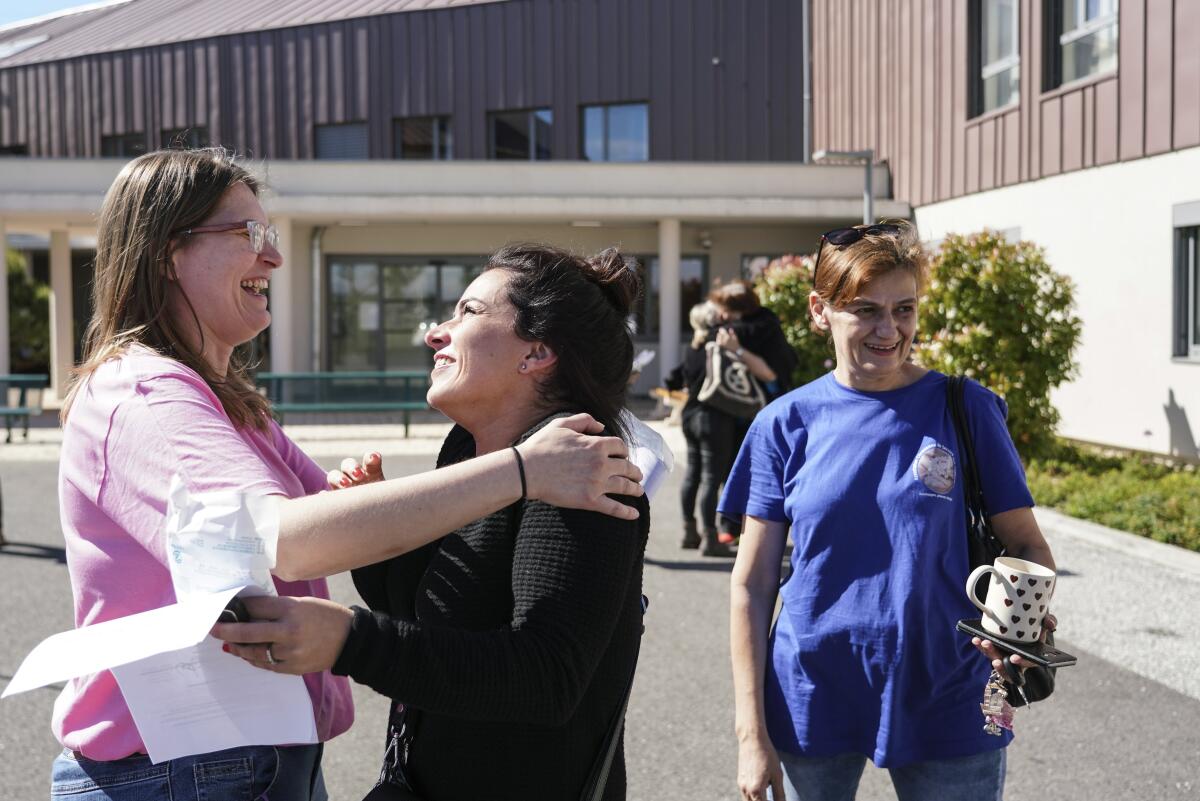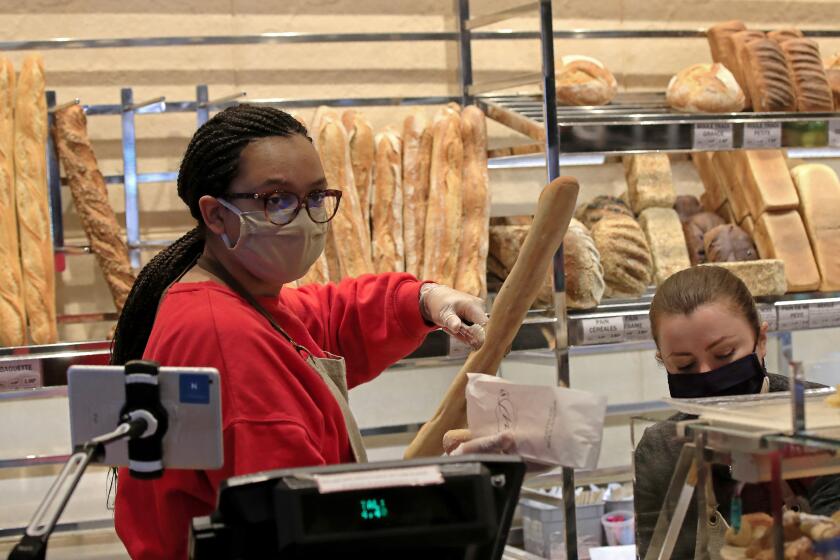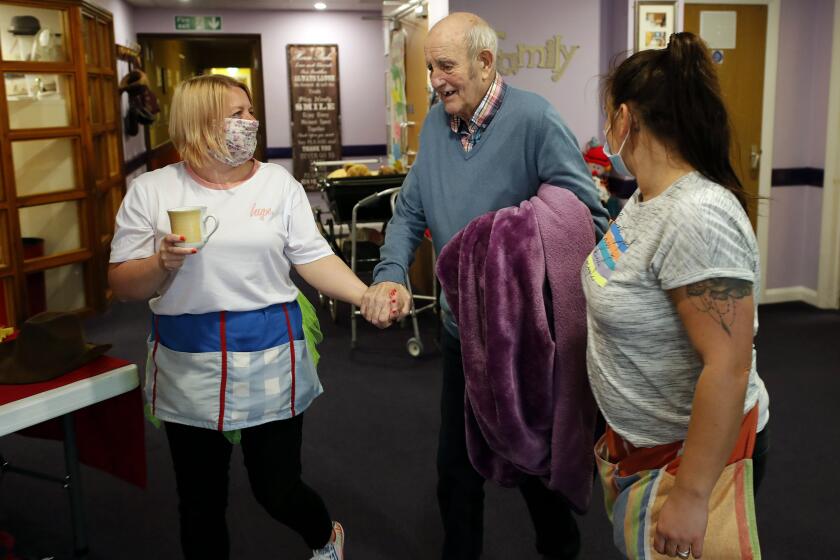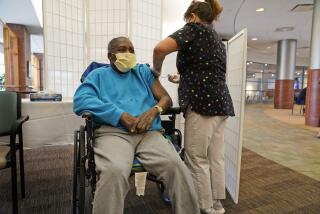Vive la Vilanova! A French nursing home takes on the coronavirus, and wins

- Share via
LYON, France — As the coronavirus scythed through nursing homes, cutting a deadly path, Valerie Martin vowed to herself that the story would be different at the home she runs in France.
The action she took to stop the virus from infecting and killing the vulnerable older adults in her care was both drastic and effective: Martin and her staff locked themselves in with the 106 residents.
For 47 days and nights, staff and residents of the Vilanova nursing home on the outskirts of the east-central city of Lyon waited out the COVID-19 storm together as the disease killed tens of thousands of people in other care homes across Europe, including more than 9,000 people in France.
“I said, ‘No. Not mine. My residents still have so much to live for,’” Martin said in an interview. “I don’t want this virus to kill them when they have been through so much.”
On Monday, Martin and 12 colleagues who stayed in the home for the full duration ended their quarantine with hugs of celebration and singing, and with an uplifting victory: Coronavirus tests conducted on the residents and staff all came back negative. The caregivers, who nicknamed themselves “the happily confined,” left in a convoy of cars, joyously honking horns and heading for reunions with families, pets and homes.
“We succeeded,” Martin said. “Every day, every hour, was a win.”
The iconic loaf and the French daily ritual of buying it have become loaded with moral, civic and public health considerations that could never have been imagined.
While COVID-19 killed people by the dozens at some other homes, Martin said there were just four deaths at Vilanova during their lockdown and that none appears to have been linked to the virus. The average age of residents at the home is 87 and the deaths were not unexpected, she said.
Because staff and residents were locked in together, Vilanova didn’t have to confine people to their rooms, as other homes did, to shield them from the risk of infection brought in from outside. That spared residents the loneliness that has been agonizing for others. Vilanova allowed residents to continue to mingle and to get fresh air outside.
The son of a 95-year-old resident described the staff as “a fantastic team,” saying they saved his mother by shielding her from the virus and keeping her spirits up, even holding celebrations for her birthday on April 17. Gilles Barret said the home’s daily Facebook posts of news, photos and videos also were “such a comfort.”
“It saved lives,” he said. “Perfect, perfect. I tip my hat to them.”
Martin said she didn’t want her residents to feel like prisoners and that she wouldn’t have felt right continuing to come and go from the home while depriving them of their liberty during France’s lockdown, in place since March 17.
Although still damaged and scarred by fire, Notre Dame Cathedral has briefly come back to life in a Paris locked down against the coronavirus.
Residents were confined to their rooms for two days at the beginning while staffers gave the home a thorough cleaning. Even that brief sequestration proved “a catastrophe,” Martin said.
“In two days, we already saw people who started no longer wanting to eat, people who didn’t want to get up, people who said, ‘Why are you washing me? It’s pointless,’” she said
In all, 29 of the 50 staff volunteered to stay, bringing pillows, sleeping bags and clothes on March 18 for what they initially thought might be a three-week stay but which they subsequently opted to extend. Other staff came from outside to help, but they were kept apart from residents and made to wear masks and take other protective measures to prevent infections.
The caregivers slept on mattresses on the floor. Martin slept in her office. One of the volunteers left a 10-month-old baby at home. The team tallied the days on a blackboard marked: “Always together with heart.”
The coronavirus is taking an emotional and physical toll on staff in Britain’s nursing homes, who often feel they’re toiling on a forgotten front line.
“It was tough,” said caregiver Vanessa Robert. But there were also moments of “total joy, getting together in the evenings, fooling around, tossing water bombs at each other.”
Martin said her top priority now is to console her lonely cat, Fanta. And one of the weirdest moments of the lockdown was climbing back into her car and hearing the same tune on the CD player — Limp Bizkit’s “Mission Impossible” soundtrack — that she had been listening to when she parked seven weeks earlier.
“It was a bit like entering a holiday camp,” she said. “Living a lockdown with 130 people is extremely rewarding.”
More to Read
Sign up for Essential California
The most important California stories and recommendations in your inbox every morning.
You may occasionally receive promotional content from the Los Angeles Times.













